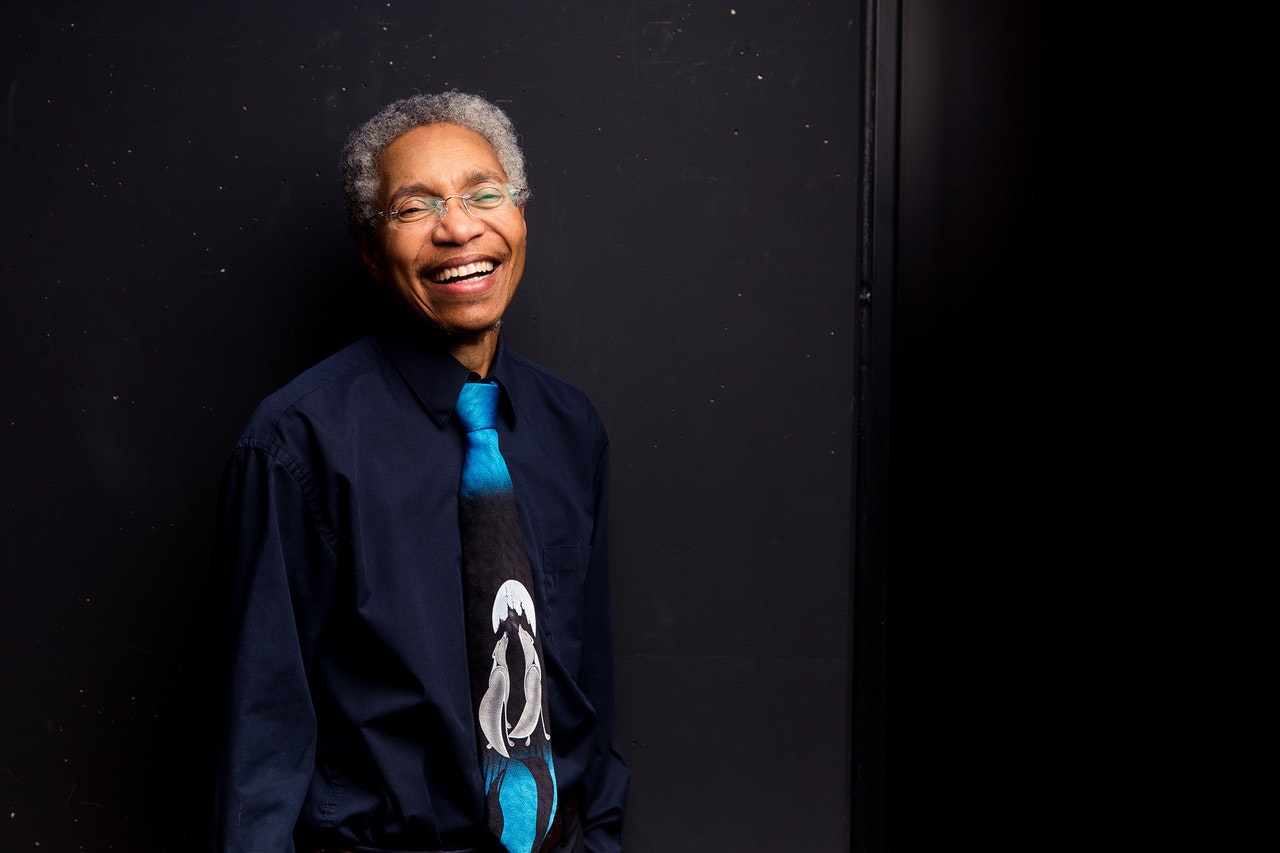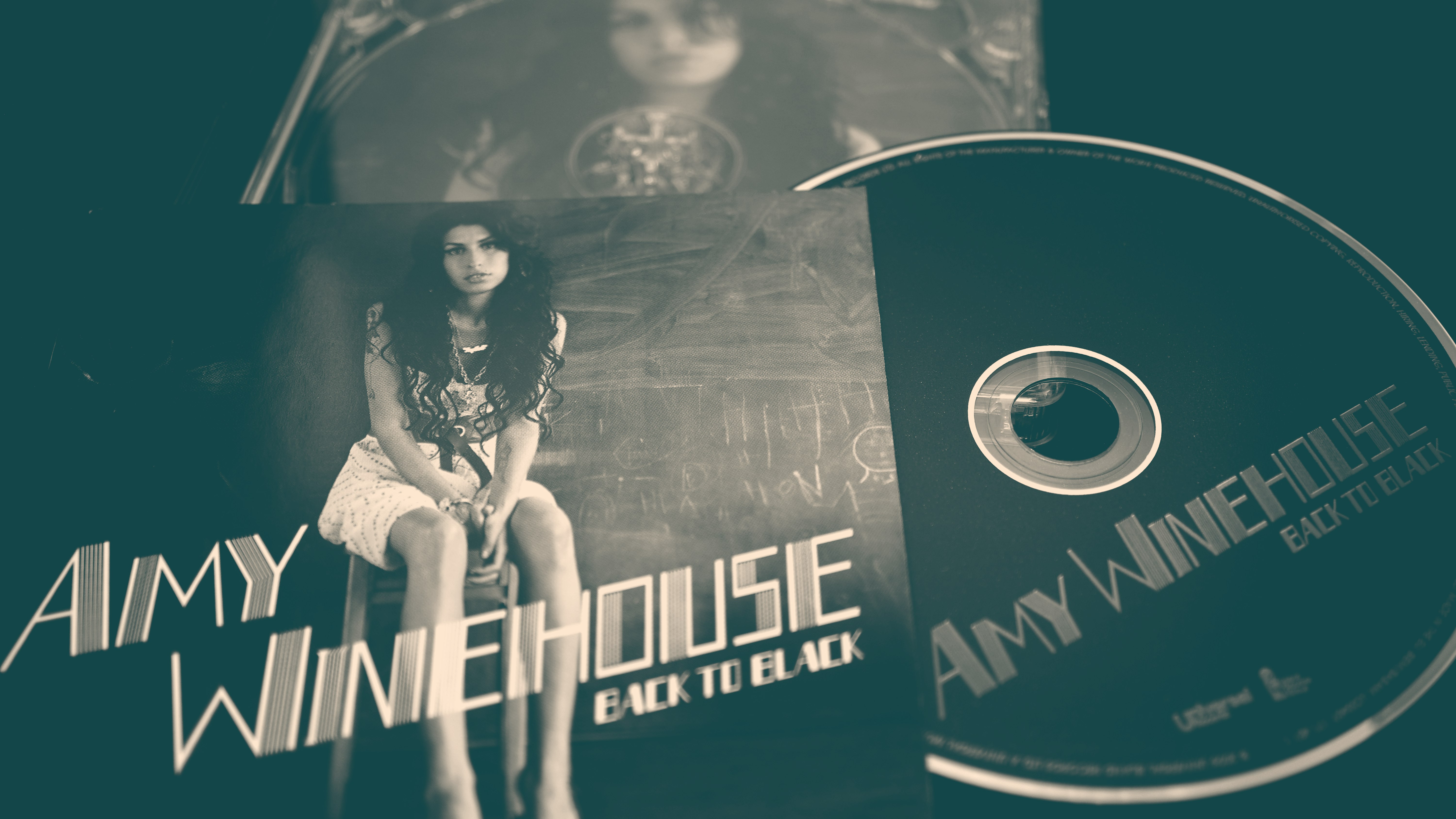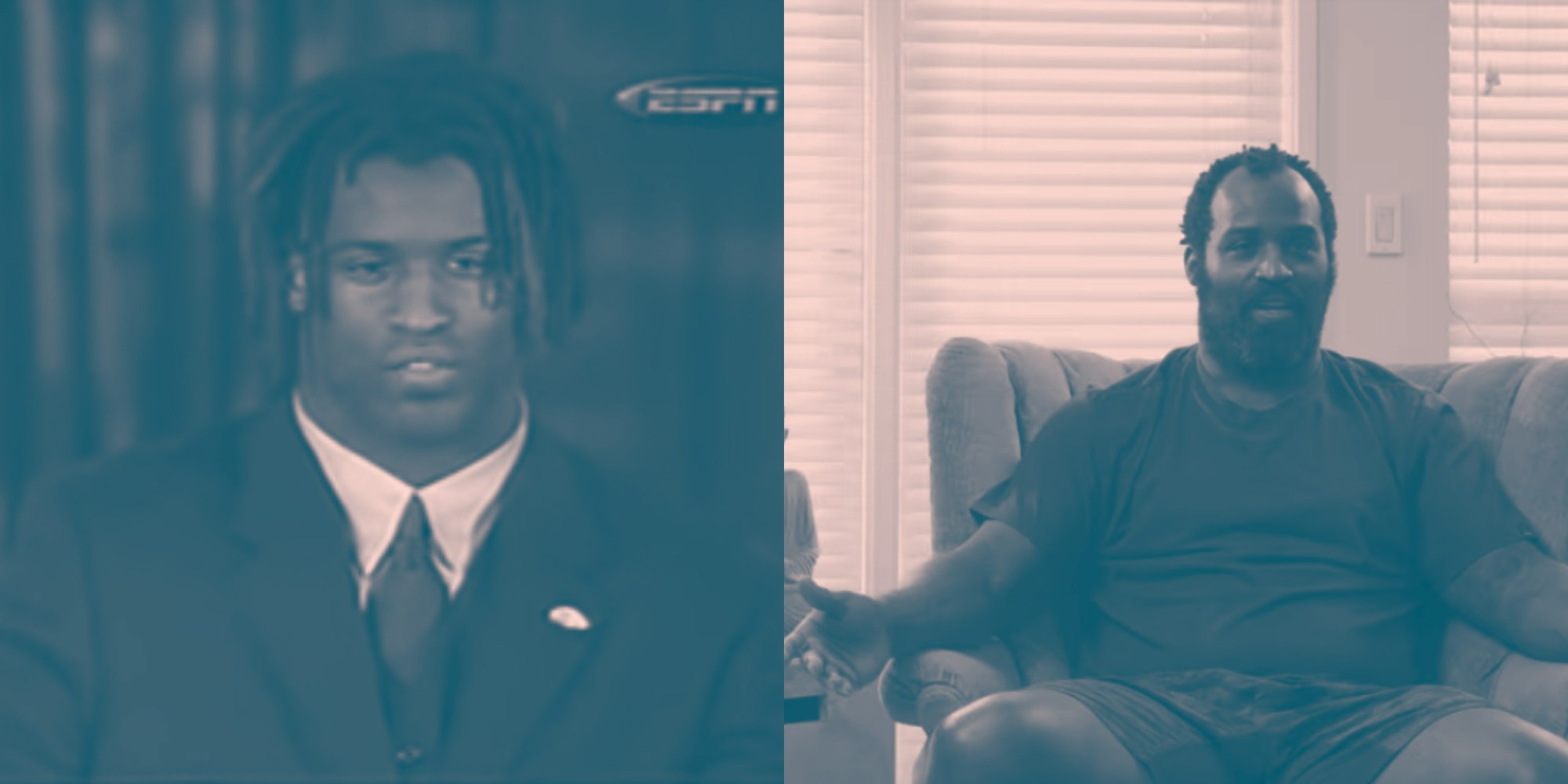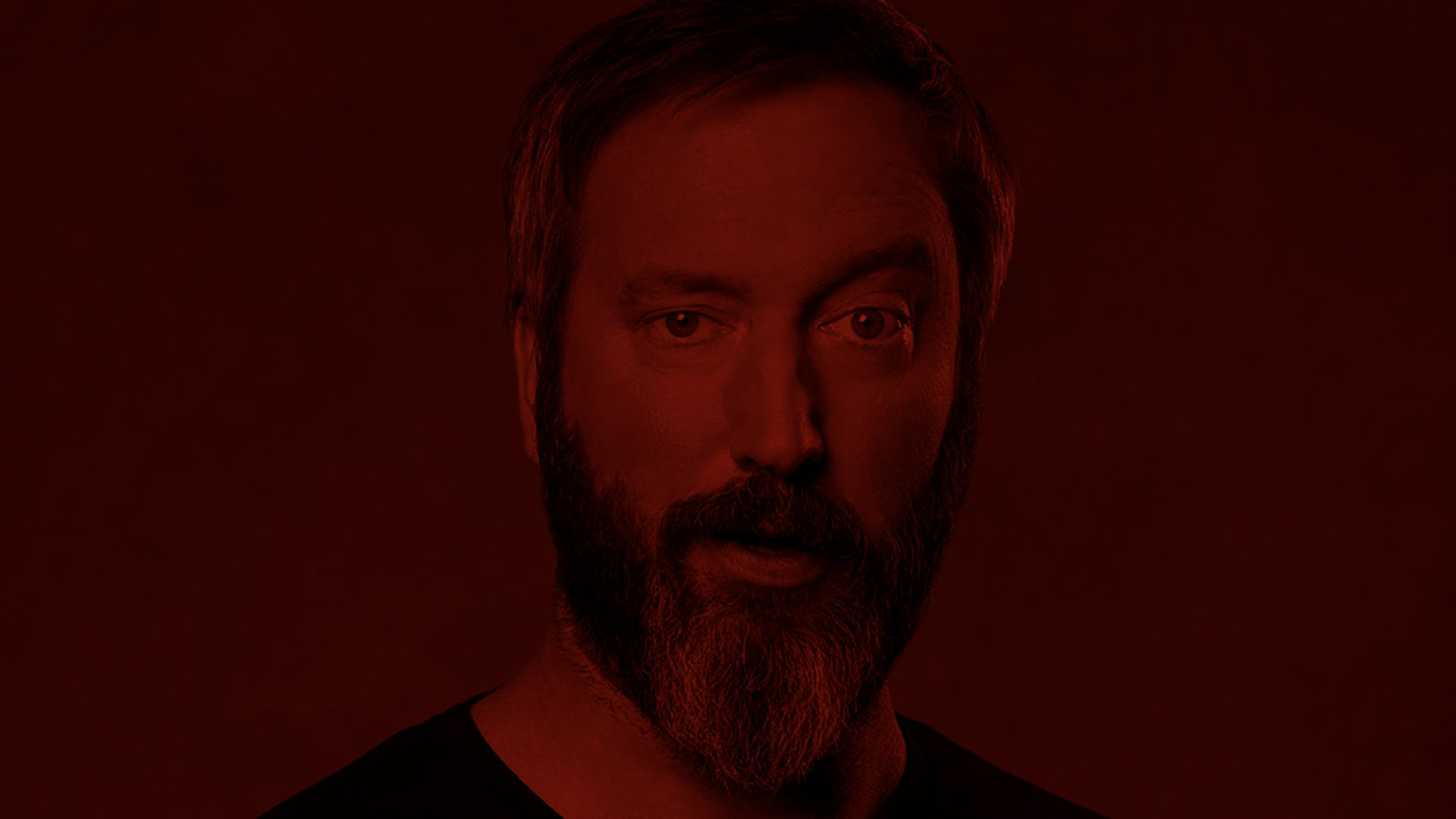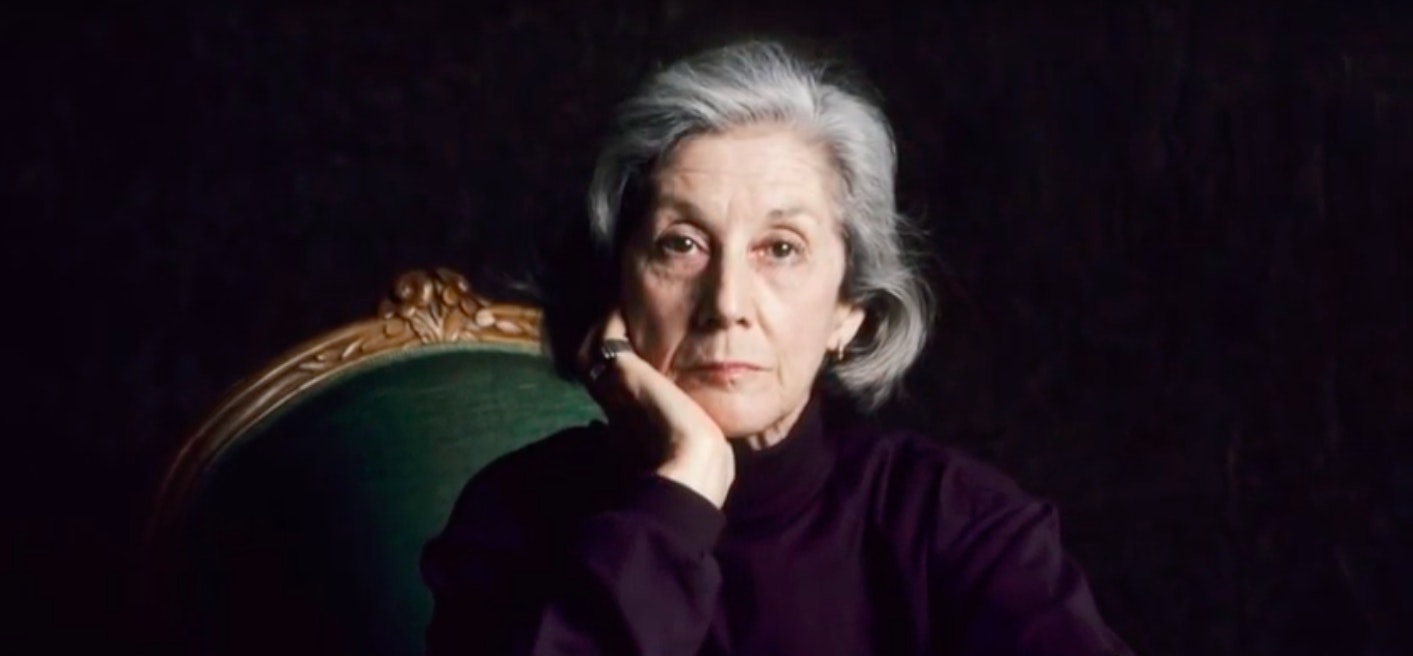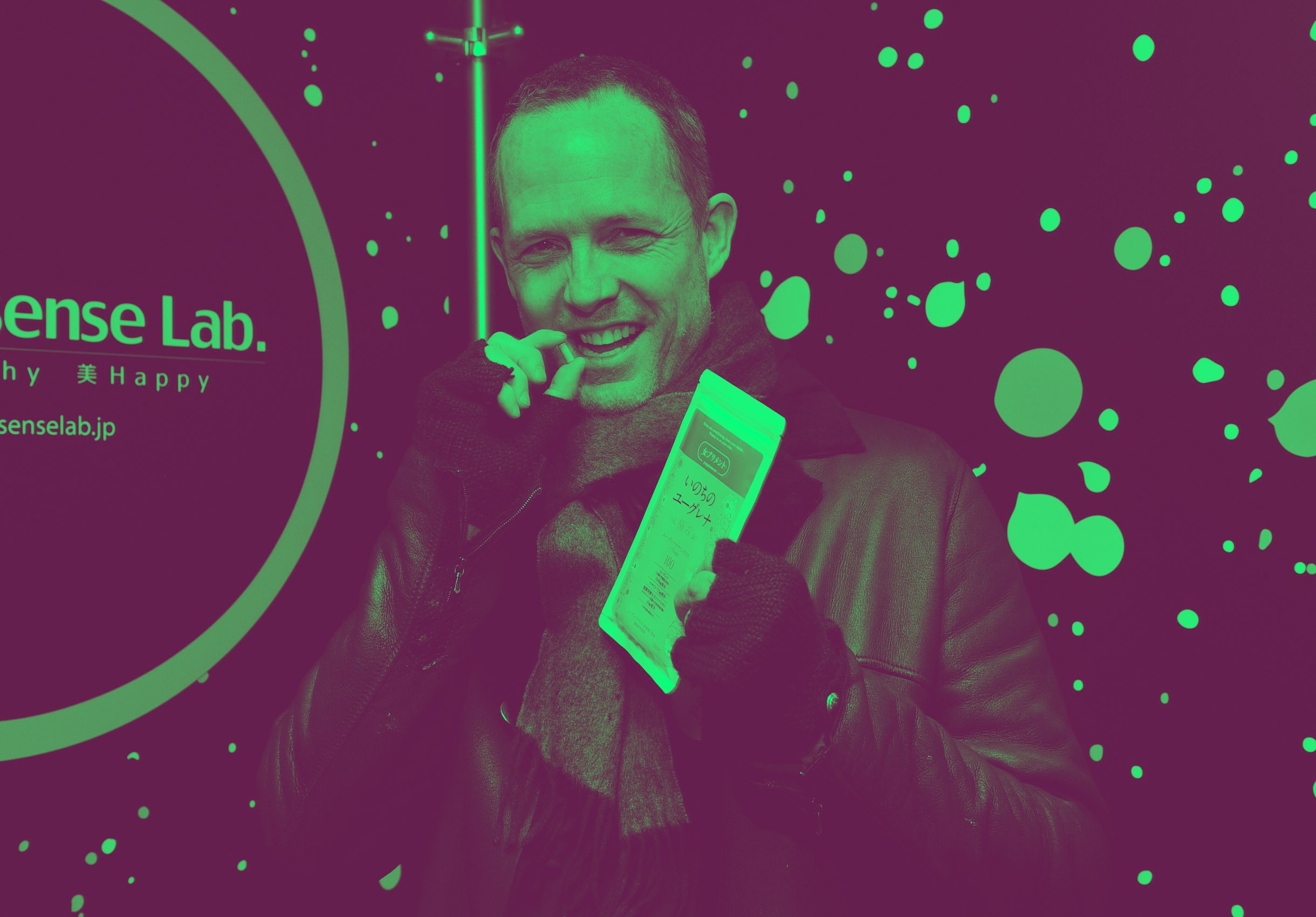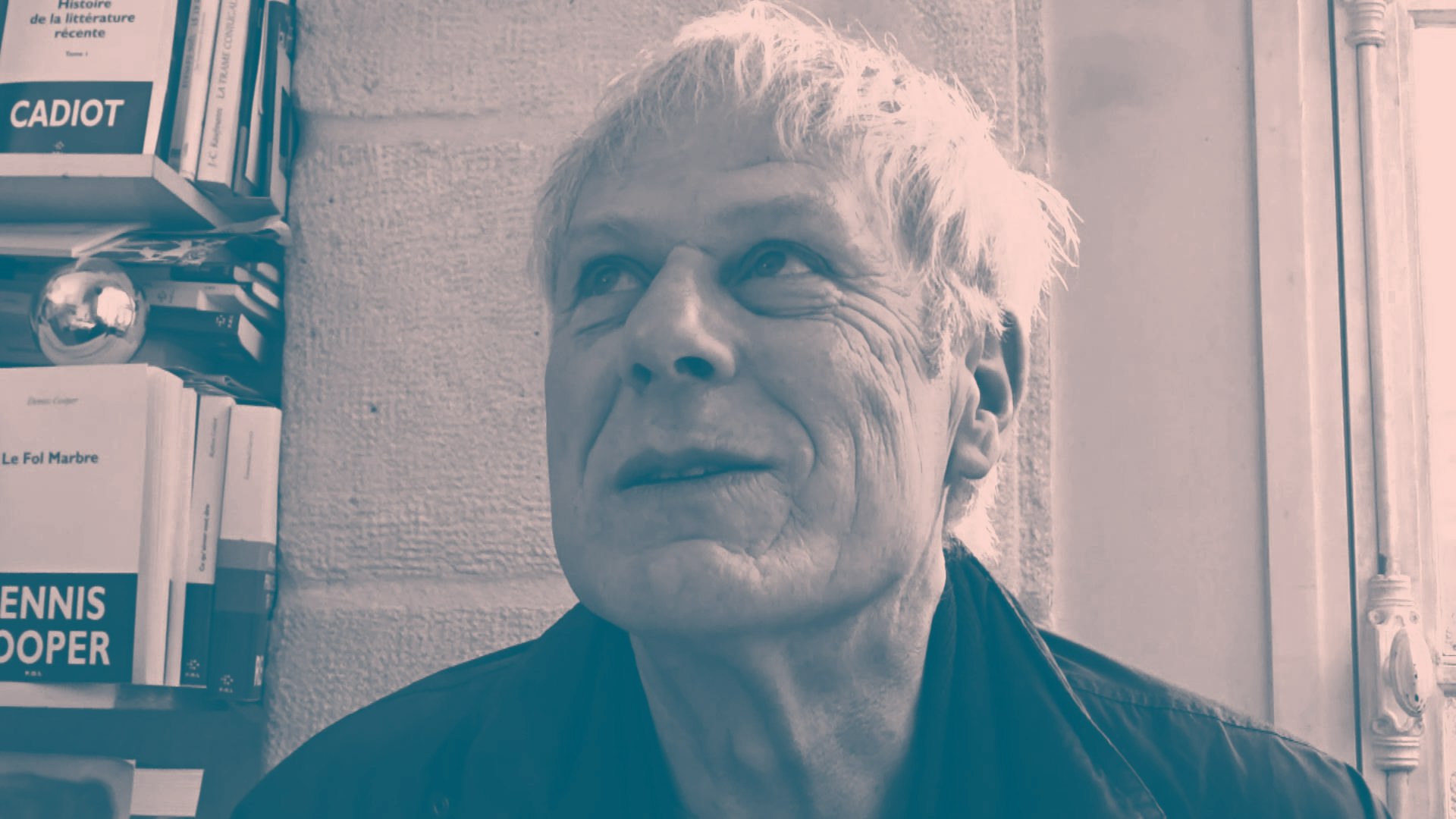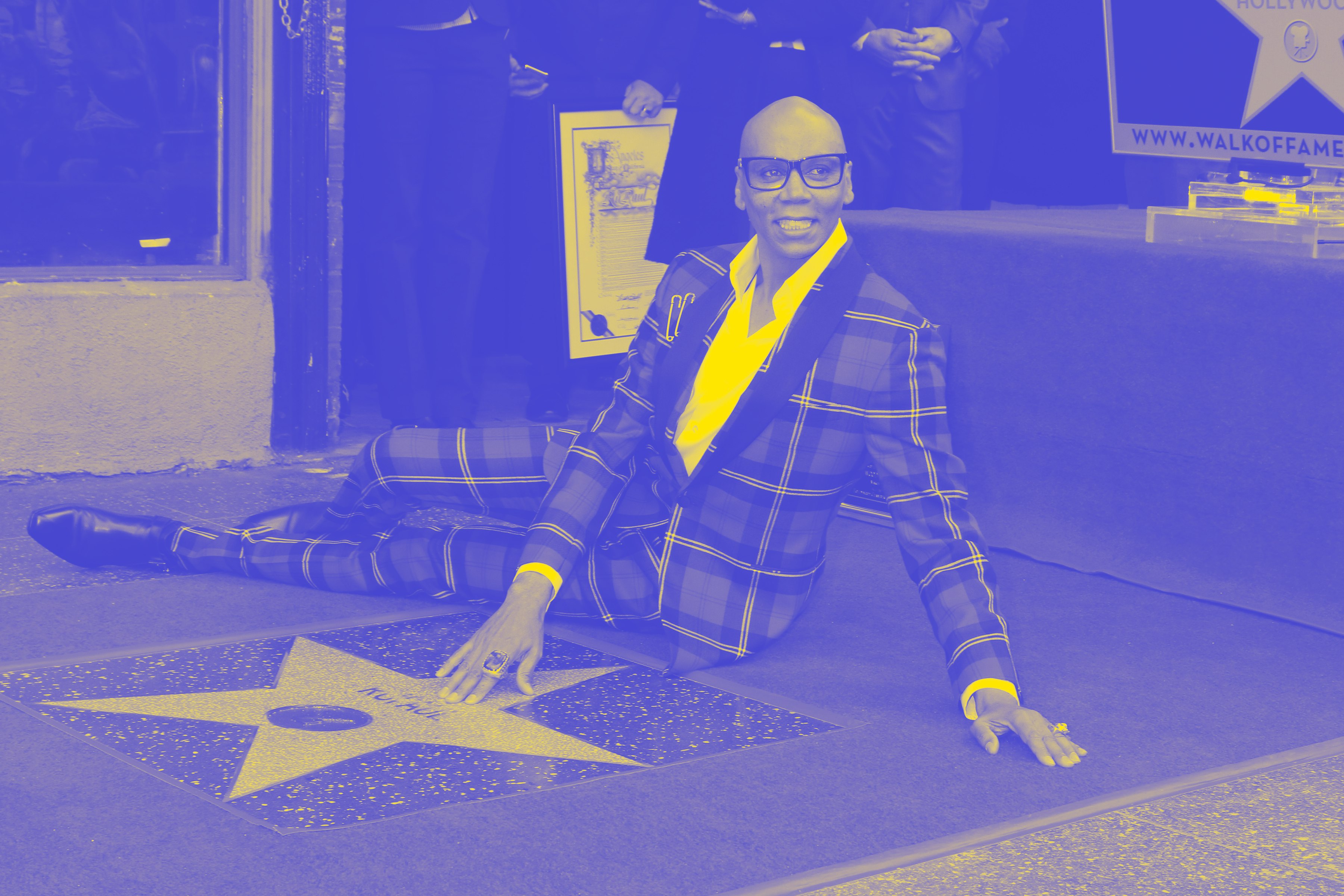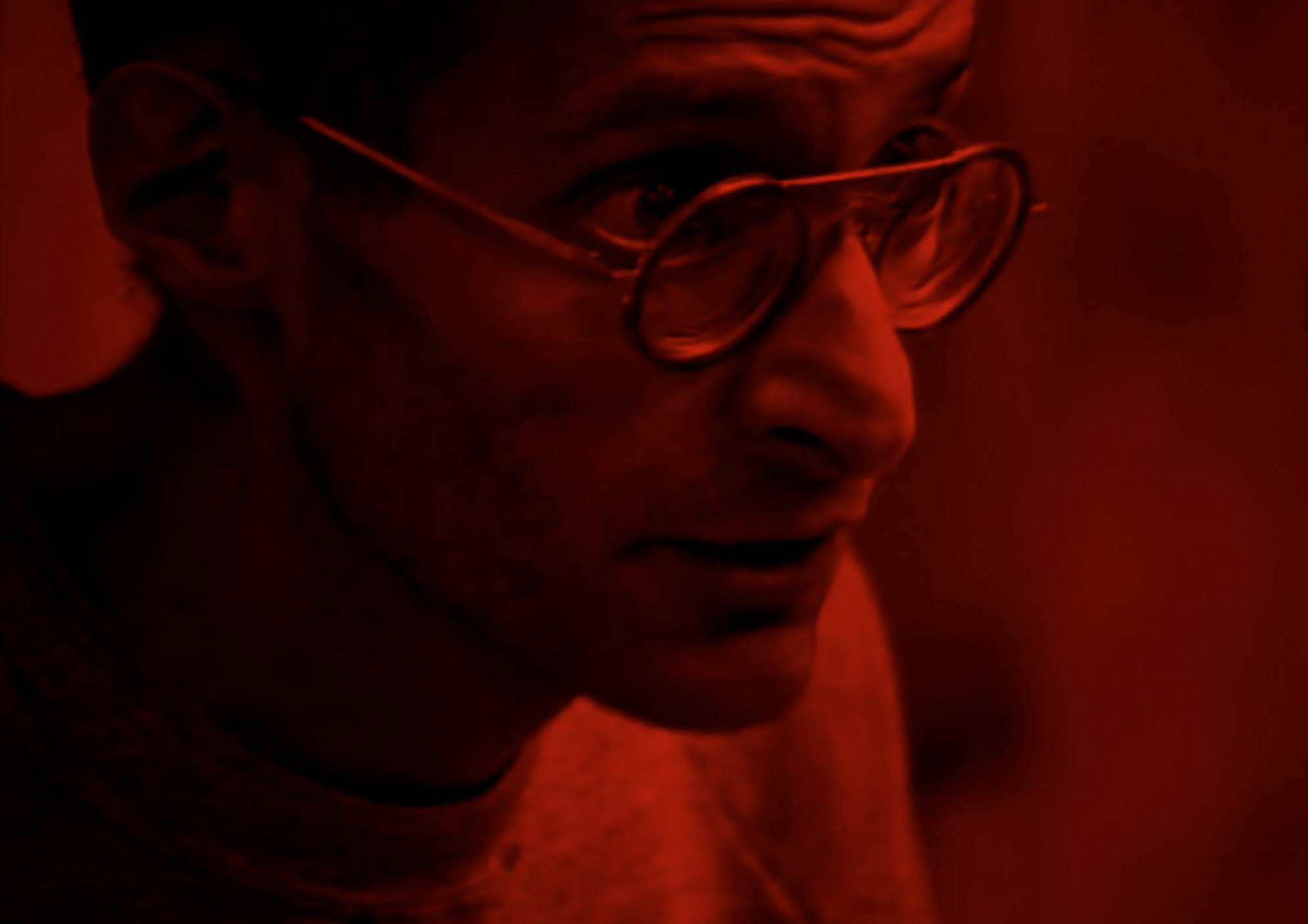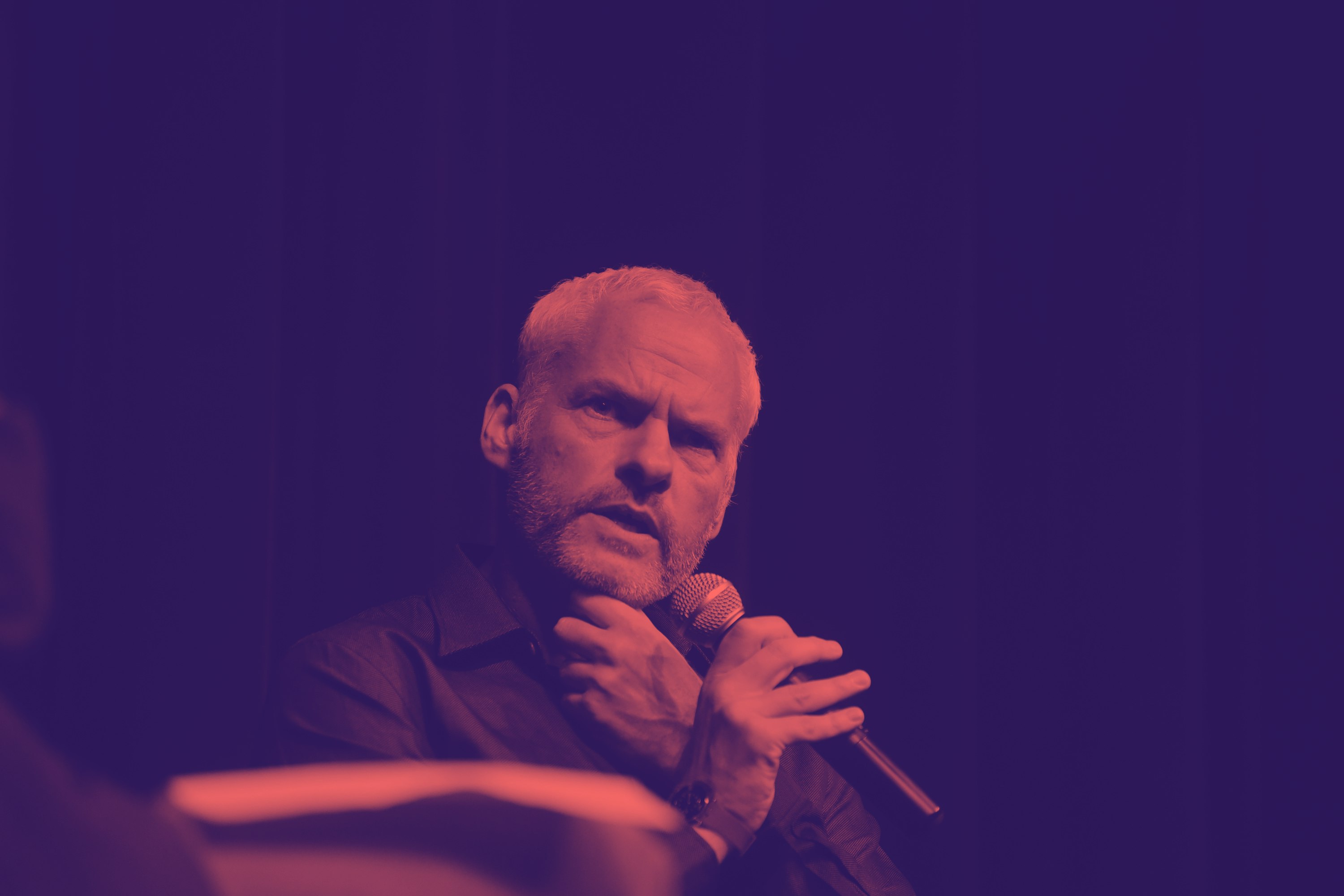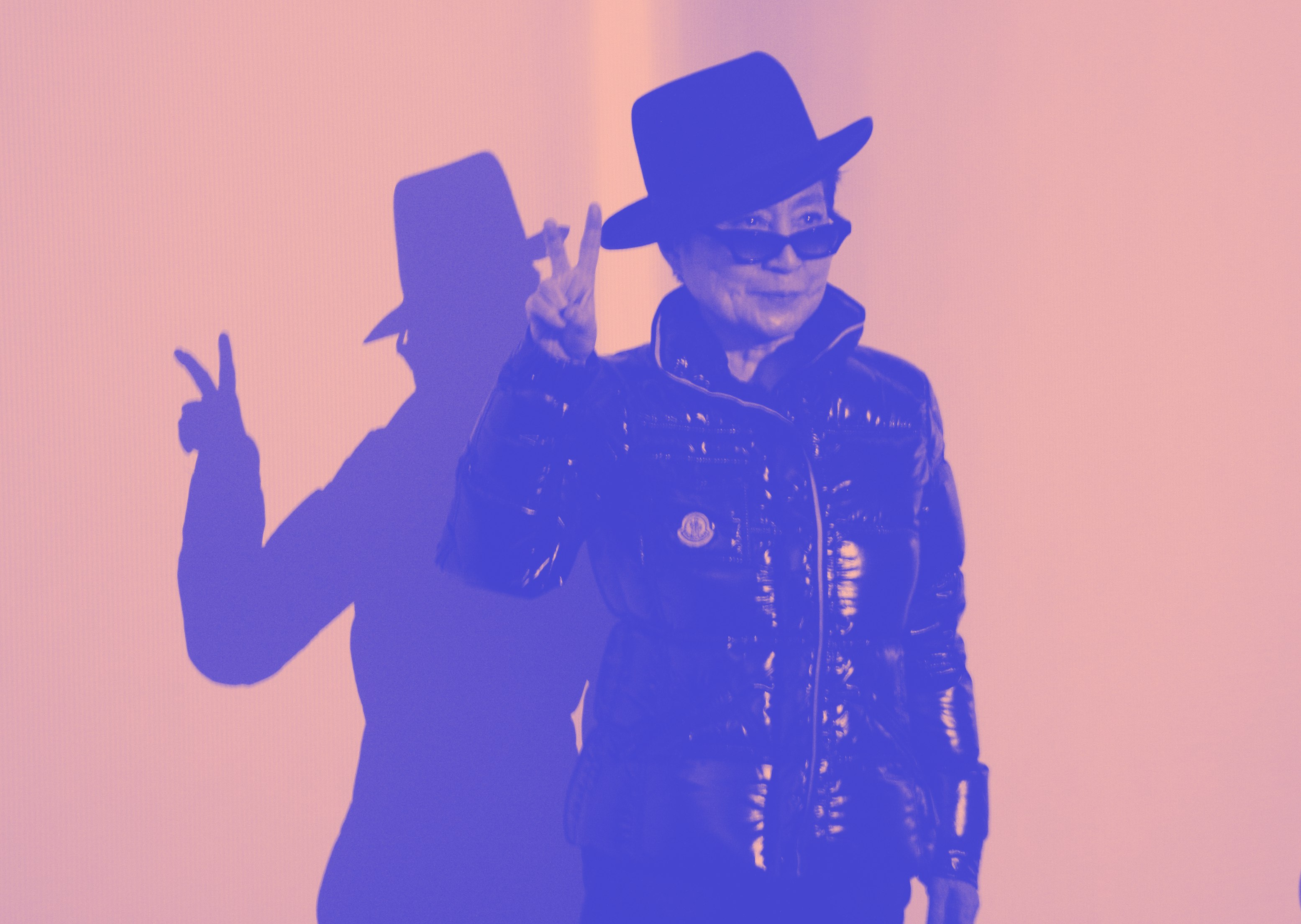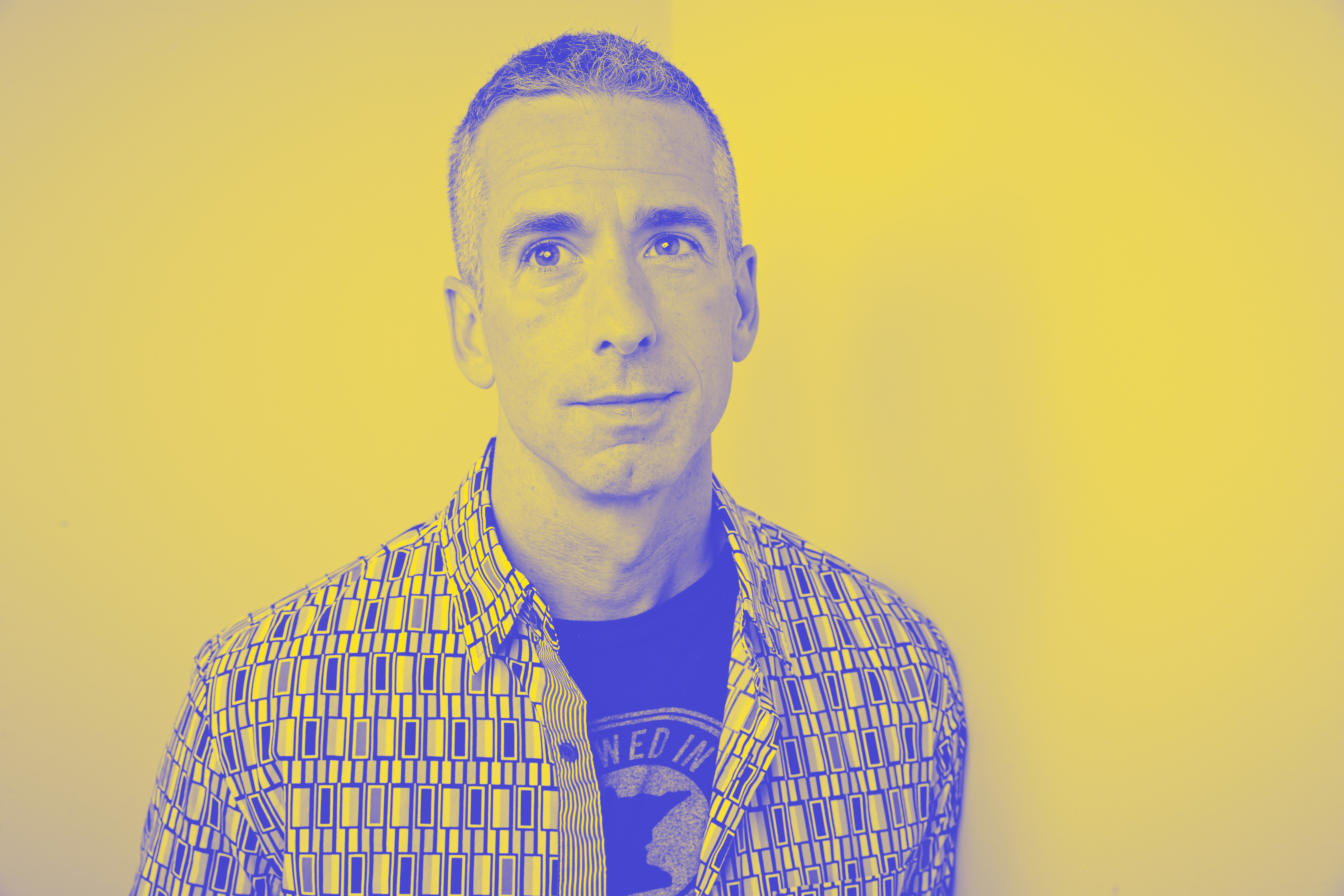Very Intriguing Person
is a series about people who fascinate us, for better or worse.
On a hot Tuesday night this past August, I was alone and tipsy in my basement, watching HBO’s documentary about the AIDS activist Larry Kramer. In Love and Anger is very good, especially if, like me, you’re too young to recall much about the most publicly visible days of the AIDS epidemic. But the only part of the documentary I actually remembered the next day was an excerpted clip of a speech delivered at an ACT UP meeting from 1994, in which the writer David Feinberg excoriated a room full of people suffering from AIDs.
At the beginning of the clip, which takes up just over a minute of screen time, Feinberg — 37 years old, and two weeks away from death — takes a snapshot of the room with a disposable camera. If there’s any emotion in the gesture, it’s hard to find. His body language reads more like he’s preparing to mace the room, or at least give everyone a dry fire-and-brimstone sermon about how they’re all going to hell.
The speech itself is essentially an unbearably harsh scolding: The portion used in Love and Anger largely consists of a list of descriptions of Feinberg’s life and physical reality, doubling as a set of grievances. “My G.I. system resembles that of a worm” he says, referring to his complete lack of control over his bowels in the exasperated tone of a customer waiting to speak with the manager. Feinberg refuses to allow even the slightest hint of reconciliation with friends and comrades at the end of his final ACT UP meeting: “We have obviously failed,” he says, “and if anybody applauds they’re just applauding their own stupidity.”
All of this happens in a slightly irritated, nasal monotone from behind piercing eyes harboring no flicker of sentiment or joy. I’m rarely deeply affected by documentaries, even when the subject is inherently moving, but I couldn’t stop thinking about Feinberg’s speech: the way he furrows his brow to spit out the word “stupidity,” the way he utterly refuses to offer a semblance of catharsis at the end of his life, the way he declares “I’ve had it” and leaves the meeting without talking to any of the people he’s just insulted. Ordinarily, we expect the narratives of terminal patients to conclude with a semblance of acceptance, bringing a degree of closure to a person’s life. Feinberg refused. In the documentary, this clip is followed with the text, “By December 1993, AIDS had killed more than 234,000 people in the U.S.” Including, of course, David Feinberg.
Over the next day or so, I did some light research on Feinberg’s life, and learned the following: He was born in Massachusetts in 1956, but grew up in Syracuse, New York. He wrote two works of fiction, Eighty-Sixed and Spontaneous Combustion. Both novels have the same protagonist: a gay Jewish New Yorker named B.J. Rosenthal who was not-so-subtly intended as a partial stand-in for Feinberg himself. A third book, Queer and Loathing, is a collection of essays published around the time of his death. In the days following my viewing of In Love and Anger, I toyed with the idea of trying to read some of Feinberg’s work, and asked people working at a few bookstores if they had copies of Eighty-Sixed to no avail. After a week or so, I got busy, and forgot to keep looking.
“He wanted to force everyone else who had this in his future to stare it down right now. No denial. No mercy.”
A few weeks later, I stumbled upon Spontaneous Combustion in a take-a-book, leave-a-book library in the back of Washington, DC’s Black Cat club. (Now that’s what I call kismet.) It took several agonizing weeks to read: Feinberg’s prose is very funny and blunt, with just a dash of the type of surrealism you tend to encounter in 20th century writing about New York. High-concept sections of the book have titles like “How We Broke Up,” “Marie Antoinette’s Uterus Is Leaking,” and “Why Didn’t I Just Let Go Once And For All Like Every Other Eligible Homosexual In Manhattan And Quite A Few Ineligible Ones And Go To The Spike On Saturday Night At One A.M.?” Feinberg’s avatar B.J. Rosenthal is biting, misanthropic, relentlessly horny, neurotic, afraid of everyone he meets. It’s like Nora Ephron if she were a significantly less wealthy gay man, and if every other character was dying from AIDS.
After a while, Feinberg became a sort of rage-specter, floating just behind my shoulder for the duration of a hot and suffocating fall. He kept showing up: in PrEP ads on the subway, in the bizarre spectacle of a Goldman Sachs Pride tank top I had found at a thrift store a few weeks earlier, in my moments of loneliness that evoked, in a small, pathetic, and sterile way, his incessant trawling for dick. The day I finished Spontaneous Combustion — cold, wet, and stoned by the beach at Coney Island — I thought about the audacity required to do what Feinberg did at the ACT UP meeting, remaining intransigent up to the moment of his death. As a conciliatory, non-confrontational person by nature, I found this final, unflinching “no” to be entrancing.
About a month later, I encountered Feinberg again; this time in Sarah Schulman’s 2012 book The Gentrification of the Mind, a memoir and critical text about New York in the 1980s, the history of LGBTQ rights movements, and AIDS. Here, Feinberg is introduced as “the guy who was so creepy to his friends that when he died they were all mad at him and never got over it.” Schulman’s passage on Feinberg argues that his relentless cynicism was a form of blindness, a way of allowing himself to feel angry about his diagnosis while ignoring those around him. “He wanted to force everyone else who had this in his future to stare it down right now,” she writes. “No denial. No mercy. He forgot that we have responsibilities to other people until the moment that we are dead.”
This point is illustrated by the story of Feinberg’s “dying party,” when he paraded himself around in a sickened, incontinent stupor, only to deeply scar his friends who were on the same path. By the time he died, Schulman writes, Feinberg’s friends were so “shell-shocked” that they allowed his parents to plan a traditional Jewish funeral against his wishes. (This did not go well — the rabbi who eventually did the service awkwardly talked about Feinberg’s fondness for “the gym.”)
Schulman writes about Feinberg in the context of the many, many people wiped from history by AIDS, people who, because they did not have traditional families and networks, were more transient by nature. (The chapter is titled “Realizing That They Are Gone.”) We tend to think of ACT UP, if we think of it at all, as something of a success story. AIDS happened, activists protested the government’s homophobia and inaction, and eventually, scientists developed, if not a cure, then at least drugs that made it easier to manage AIDS and for people suffering from the illness to have longer lives. By this “we,” I mean everyone who wasn’t there: young people, straight people, people who are materially better off, the uncaring survivors. Feinberg’s aggression feels, to me, like a preemptive attempt at complicating this narrative. It does not seem like he succeeded.
I didn’t know Feinberg, and it would be absurd for me to quibble with Schulman over her characterization of her friend. But she writes that Feinberg “wasn’t sentimental at the time, when a lot of people were, and that made the books seem acerbic and special” and, at least for me, Feinberg’s books don’t seem acerbic and special; they are those things. As much as I would like to put myself in the jaded position of pretending there is no place for treacle in these conversations, I can’t. Even in my angriest, most righteous moments, I can’t help but feel the pull of a certain degree of schmaltz — and I can’t help but wonder whether this isn’t the case for others, too. And though a degree of refusal, of negation, permeates several strains of queer thinking, few sentences have grabbed me as strongly as this one, from Feinberg’s first novel, Eighty-Sixed, in which B.J. Rosenthal recoils from one of his friends, a gay man of the cloth: “The atheist suppressed his sneeze, for fear of being blessed by the priest.”
I’ll never know how much of Feinberg’s rage was arch, how much was art, and how much was just the result of an obstinate and unpleasant personality. It doesn’t really matter. Rage is, itself, a form of obsession, one that, if we think enough about the world, we come by honestly and seemingly at random. I think about the way the clip of Feinberg’s ACT UP is used to demonstrate the stakes of ACT UP’s work — to justify Kramer’s obstinacy and willingness to piss people off, and remember that David Feinberg died anyway. Maybe he had the right idea.



